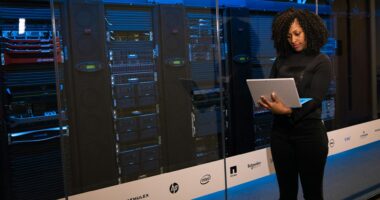A prominent American trade union official has argued that artificial intelligence development prioritises technological advancement over workers’ welfare, creating unprecedented wealth concentration amongst tech entrepreneurs.
Dustin Guastella, director of operations for Teamsters Local 623 in Philadelphia, contends that AI represents “the most efficient upward redistribution of wealth in modern history,” reports The Guardian.
The union leader points to recent corporate earnings as evidence of AI’s impact on inequality. Palantir reported over $1 billion in quarterly revenue with 48% growth, whilst computer science graduates face elevated unemployment rates following advances in automated programming.
In a promotional video, OpenAI chief executive Sam Altman claimed the technology “can write an entire computer program from scratch,” which Guastella cites as evidence of AI’s displacement threat to knowledge workers.
Billionaire status
Twenty-nine founders of AI companies have achieved billionaire status, with nearly 500 AI startups now valued above $1 billion each. These valuations reflect investor confidence in technology that could eliminate human labour requirements across multiple industries.
Guastella argues that current investment priorities favour high-technology development over essential infrastructure and services. Congress approved $280 billion for technology investments in 2022, whilst private AI investment reached $230 billion in 2024. This year’s projected $320 billion in AI and data centre spending contrasts with $110 billion allocated for roads and bridges under previous administration programmes.
The trade union representative advocates for increased investment in traditional labour-intensive sectors, arguing that infrastructure repair, public transport and essential services require human workers rather than automated systems.
McDonald’s, Walmart and Amazon are implementing AI tools to automate service interactions and warehouse operations, potentially affecting employment across skill levels. The author suggests that even knowledge workers face displacement as AI capabilities expand.
Guastella warns that the “knowledge economy” promised social advancement but delivered increased inequality between college-educated and non-college-educated workers. AI development threatens to extend this division by eliminating both manual and intellectual labour categories.
The union official concludes that society should redirect technological development to serve human needs rather than allowing technology to dictate social priorities.











